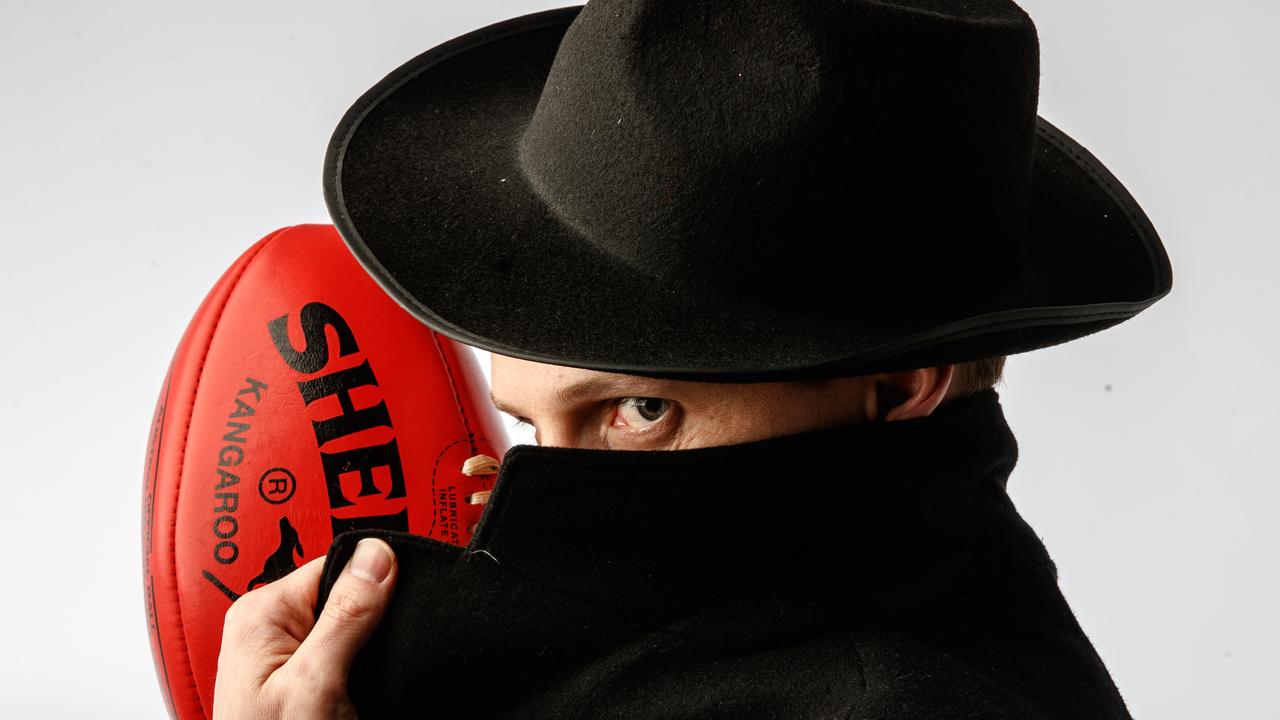Anti-vaccination parents face $15,000 welfare hit under ‘No Jab’ reforms
PARENTS who refuse to vaccinate their kids will be denied up to $15,000 a year in childcare rebates and welfare under tough new rules.

News
Don't miss out on the headlines from News. Followed categories will be added to My News.
PARENTS who refuse to vaccinate their kids will be denied up to $15,000 a year in childcare rebates and welfare under tough new rules.
Prime Minister Tony Abbott and Social Services Minister Scott Morrison will announce the historic reforms on Sunday, which mean parents who fail to immunise their children will no longer be paid the $200-a-week childcare benefit, the $7500-a-year childcare rebate or the $726 Family Tax Benefit A annual supplement.
The combined childcare and welfare payments at risk could amount to up to $30,000 a year for a family with two young children. The changes will come into effect from January 1, 2016.
Australia has vaccination rates over 90 per cent for under-5s, but the number of vaccine refusers is steadily rising.
“Parents who vaccinate their children should have confidence that they can take their children to childcare without the fear that their children will be at risk of contracting a serious or potentially life-threatening illness because of the conscientious objections of others,’’ Mr Abbott said.
“This means that the vaccine objectors will not be able to access these government payments.’’
Currently, immunisation is a requirement to access childcare payments and the FTB supplement. But all parents have to do to dodge the requirements is sign a form confirming they have discussed immunisation with a GP and have a “personal philosophical, religious’’ reason not to vaccinate.
As a result, the number of vaccine refusers denying children life-saving medicines is rising in Australia, with 39,000 children under the age of seven not vaccinated.
This shocking figure represents an increase of 24,000 children over the past decade.
Current exemptions on medical or religious grounds will continue, but Mr Morrison said they would only exist where the parent was affiliated with the religious group, and the governing body had formally registered an objection and it had been approved by the government.
“It is up to families whether they choose to vaccinate their children and it is government policy supported by the best possible health advice and research that they should do so,’’ Mr Morrison said.
“However if families choose not to follow that approach, then that choice does not entitle those families to gain access to taxpayer-funded benefits, especially where it would involve their children being placed together with children from families who have been immunised.’’
Labor leader Bill Shorten is also offering bipartisan support for tougher provisions, writing to the Prime Minister on Friday urging him to close the conscientious objector loophole. His support is vital because the changes will require Senate support to become law.
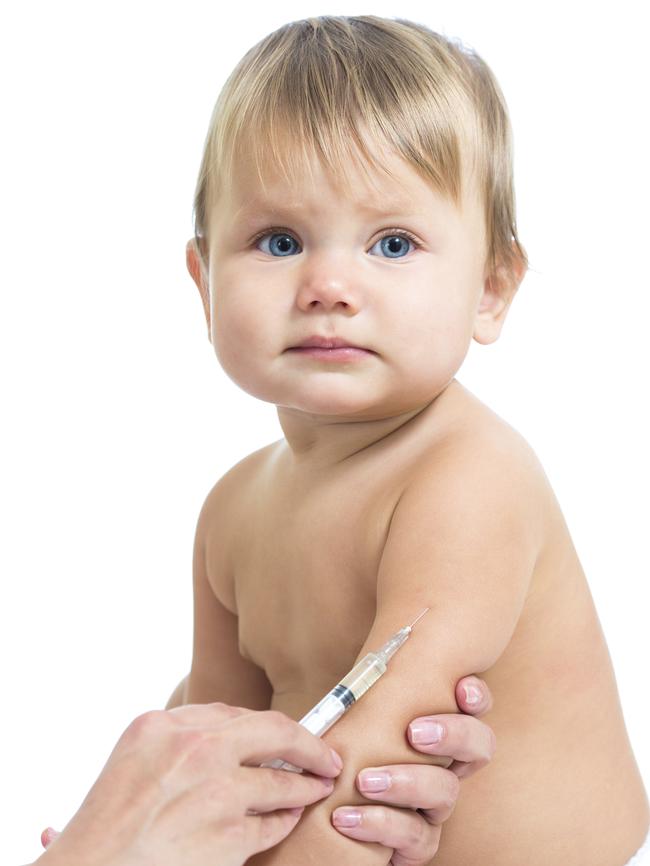
“The science is settled, the experts agree and strengthening these requirements is a common-sense measure that will benefit all children,’’ Mr Shorten said.
“Unless a parent has a deeply- held religious view, there should be no exceptions to the community expectation that children are immunised.’’
Currently, to meet the immunisation requirements for the Family Tax Benefit Part A supplement you need to have your children immunised during the financial years in which each child turns one, two and five years old.
This means that parents have up to $2100 a year at risk over the three key vaccination checks. However, the “No Jab, No Pay” reforms to be announced today go further, applying to all young children beyond 12 months. This means children would miss out on the $728 supplement every year they are not vaccinated.
Only children under the age of 12 months will be excluded from the new “No Jab, No Pay’’ reforms.
The immunisation requirement does not apply to the fortnightly FTB A payments, only the $728-a-year supplement.
For the childcare rebate, the reform means parents could miss out on up to $7500 per child each year.
Parents who fail to immunise their children will also be ineligible for the FTB Part A end-of-year supplement worth $728 a year.
Parents could also be denied up to $6100 in childcare benefit payments based on a youngster being in childcare three days a week.
OUR STORIES: WHY VACCINATION IS SO IMPORTANT
BY ELISA BLACK
SUE Foster, 68, knows the importance of vaccination.
Mrs Foster contracted polio when she was seven and developed paralysis down her left side. She spent 18 months out of school and vividly remembers the boy down the road, who caught polio at the same time, being wheeled up by his mum in a hospital bed as he couldn’t walk.
The mother-of-five consequently had all of her children vaccinated. “Obviously I am an advocate for vaccinations, and do believe that children should not be able to start childcare, kindy or school unless vaccinated,’’ the Woods Point resident said.
“I am always amazed at the number of people who propose the dangers of vaccinations. Many of these so-called dangers have been based on evidence which was found to be falsified. Many people only hear what they want to and seem to be unable to balance the argument.
“A child who has a vaccination and gets a runny nose and grizzles is not the same as a child who dies from whooping cough or suffers and dies from the degenerate diseases associated with measles.”
But her daughter Nicki Foster – mother of a son, 14 – has chosen not to follow the Childhood Immunisation Schedule despite her mum’s experiences.
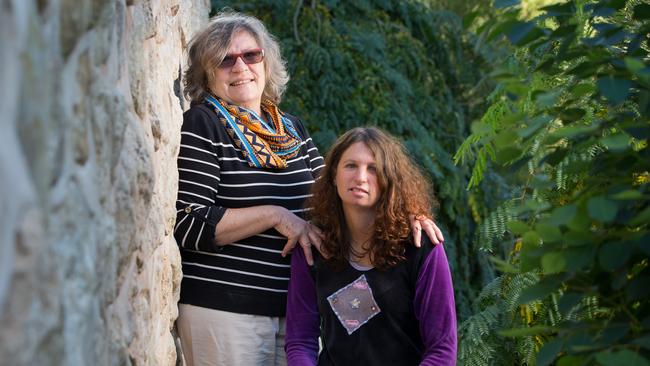
Ms Foster, 49, said she wasn’t anti-vaccination but that medical professionals needed to acknowledge differing ideas and respect the individual’s right to choose if, and when, to vaccinate.
“I totally understand that vaccination has had a huge affect on how we don’t have to worry about a lot of those terrible childhood diseases,’’ she said. “But I believe there is a need for balance. Medical professionals need to understand and give compassion that for some parents who are learning and worrying it’s a different decision.
“There were things I was reading from the anti-vaccination camp and you’ve got this tiny baby and you feel responsible for their health and wellbeing and for all the decisions that have to be made. There was a lot of pressure and some doctors were quite aggressive when I asked questions.
“I felt all the childhood vaccinations were done much too fast. That was my feeling and I felt comfortable making my own decisions and when I feel he will be ready. He will have everything eventually.”
Mrs Foster said the pair’s conflicting beliefs had led to many discussions over the years. “You have every right to do what you want but you might also be damaging someone else,’’ she said.
But despite their differences they did not support financially punishing parents who did not vaccinate their children.
Mrs Foster said the “no jab, no pay/play’’ idea could hurt the “most disadvantaged”.
“I don’t like the idea of punishing the child,” she said.
“I think it would be better to work on other ways to get people to vaccinate.”
Ms Foster said the thought of tying parenting payments to vaccinations was “horrifying”.
“We live in a democracy and people have the right to have different beliefs,’’ she said. “The decisions we are making about our own children’s health should be our right.
“Of course if our child or anyone else’s got sick we’d all be devastated. We have all the same concerns for everyone’s wellbeing – the fundamental dilemma lies in the conflict between the individual making choices for their child’s and society’s wellbeing.”
HOW WE WERE ROBBED BY POLIO
BEFORE the introduction of polio vaccines in the 1950s and ’60s, polio was a common infectious disease.
One in 200 infections led to irreversible paralysis. Between 2 and 5 per cent of people who developed paralytic polio died.
Australia has been declared polio-free since 2000. However, it remains endemic in three countries – Nigeria, Pakistan and Afghanistan – and the World Health Organisation states that as long as a single child remains infected with poliovirus, children in all countries are at risk of contracting the disease.
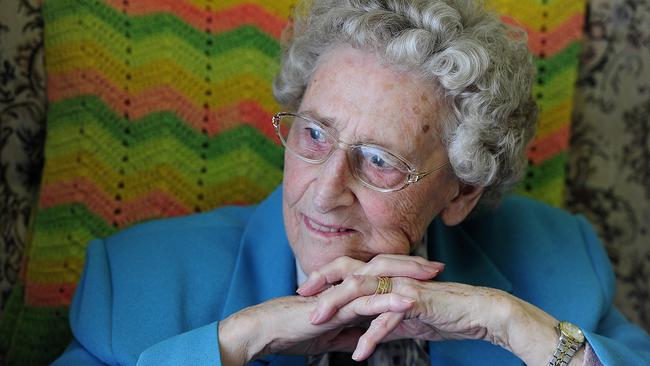
Lorna Thomas, 88, of Smithfield, contracted polio at the Royal Adelaide Show in 1954. She was 27 and five months pregnant.
“I started to feel sick about a fortnight after going to the Show. I felt bad but I didn’t know if it was from being pregnant but when I started to feel really bad they took me to Snowtown Hospital. Through the night my mouth started to feel queer.
“The doctor came and he asked how I was and I said I felt quite funny, not at all well. He told me to see how I went for the next 24 hours.
“By the time those 24 hours had gone by you could have cut me down the centre of my body – my left side was completely paralysed and that’s when they knew I had polio.
“ I was still paralysed on my left side when my baby was born and for a long time I couldn’t guarantee that my left leg would hold me up. When my baby was seven weeks old I asked the doctor if I was going to get better, he said ‘Mrs Thomas you have had polio’.
“I developed post-polio syndrome in 1990. I think vaccinations are amazing. Some people might not believe in them but it only takes one person who visits a country where is still exists to bring it back.”
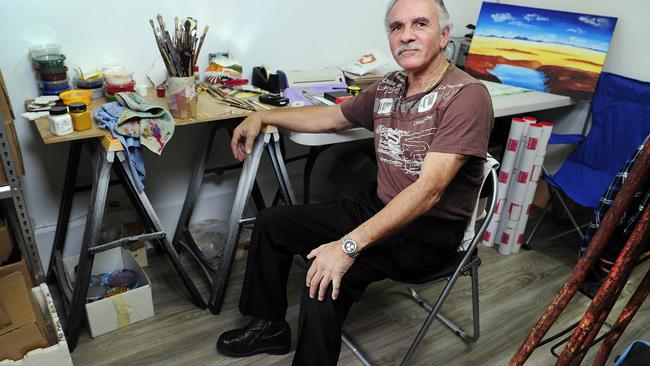
Michele Frisari, 62, of Hope Valley, contracted polio in Italy when he was one.
“My family knew I was sick because I fell asleep for two days but they thought it was just a fever. But my grandma had a bad feeling and wrapped me in a blanket and took me to hospital in the city.
“By that time I was paralysed completely.
“I remember every day my family would try to inject me and I would try to run away by dragging myself along the ground with my arms, my legs following like a snake.
“I didn’t even stand up, learn to balance, until I was six.
“My left leg is 6cm shorter than my right, I lost the muscle the whole way up.
“I had a lot of anger growing up for the things I couldn’t do. I ended up going to a special school in Milan for kids with polio. There were 500 kids there and some of them were completely paralysed and could only talk. Now that place is an entertainment centre for old people because polio is gone because of vaccination.
“Those parents who don’t vaccinate, they are stupid. They don’t know what they are doing. I call not vaccinating child abuse, criminal.”
THE MYTHS AND FACTS ABOUT VACCINATION
Since the death of four-week-old Perth boy Riley Hughes last month from whooping cough, rumours have spread online about the safety and efficacy of the whooping cough ([pertussis) vaccine.
SA Health dispels the myths:
Pertussis vaccine was first made widely available to infants in Australia in the 1940s and has been available in combination with diphtheria and tetanus vaccines since the 1950s.
Before the introduction of the vaccine there were about 2,800 deaths from pertussis each year in Australia; since this time the number of deaths from pertussis has reduced so significantly that only a small number now occur each year across Australia. You can still get pertussis after having a vaccination but the illness will be less severe.
Pertussis is a challenging disease to control because immunity, from either immunisation or from previous infection, wanes over time leaving individuals susceptible to infection.
Pertussis is always circulating in the community with epidemics occurring every three to four years in Australia. The main strategy of the vaccination program is to control the disease in the group most at risk of severe complications and death, which is children less than six months of age.
In South Australia the pertussis vaccine is now offered to women for free in the third trimester of pregnancy. The transfer of antibodies from mother to child while still in utero has been shown to be more than 90 per cent effective in protecting infants in the first weeks of life before they are old enough to receive their first pertussis vaccine.
The first pertussis vaccine should be given to babies at 6 weeks followed again at 4 months and 6 months of age. This has been shown to be around 84 per cent effective against severe disease but the immunity drops to around 50 per cent before 4 years of age. For this reason it is recommended that children also receive 2 booster vaccines in childhood at 18 months of age and 4 years of age. A third booster is also offered to adolescents in Year 8 of high school.
The vaccine is recommended for any adult who wishes to reduce the likelihood of becoming ill with pertussis and anyone who has close contact with infants.



